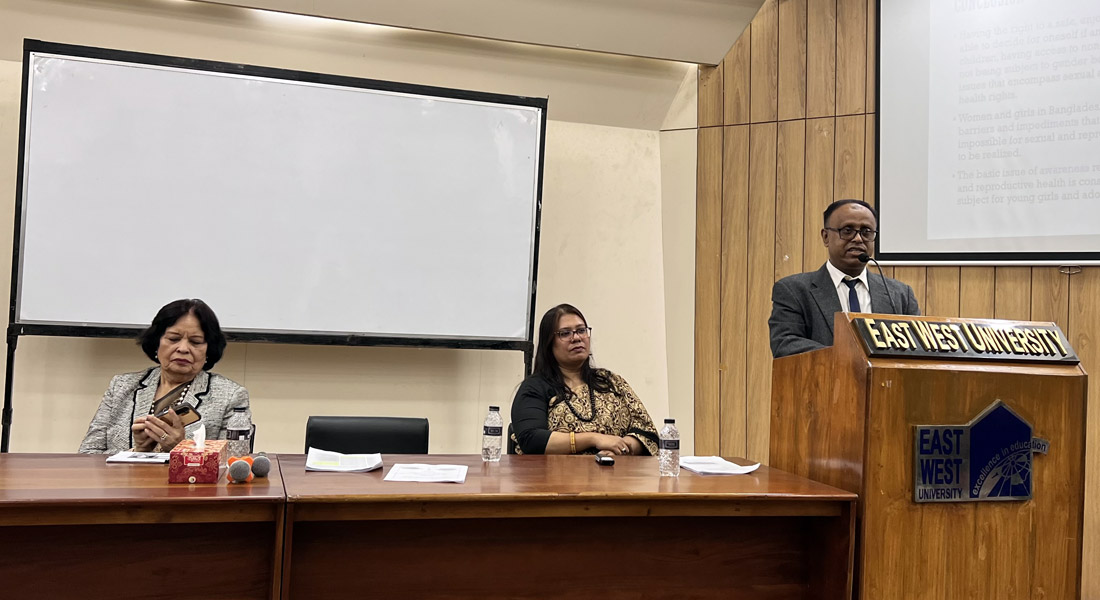
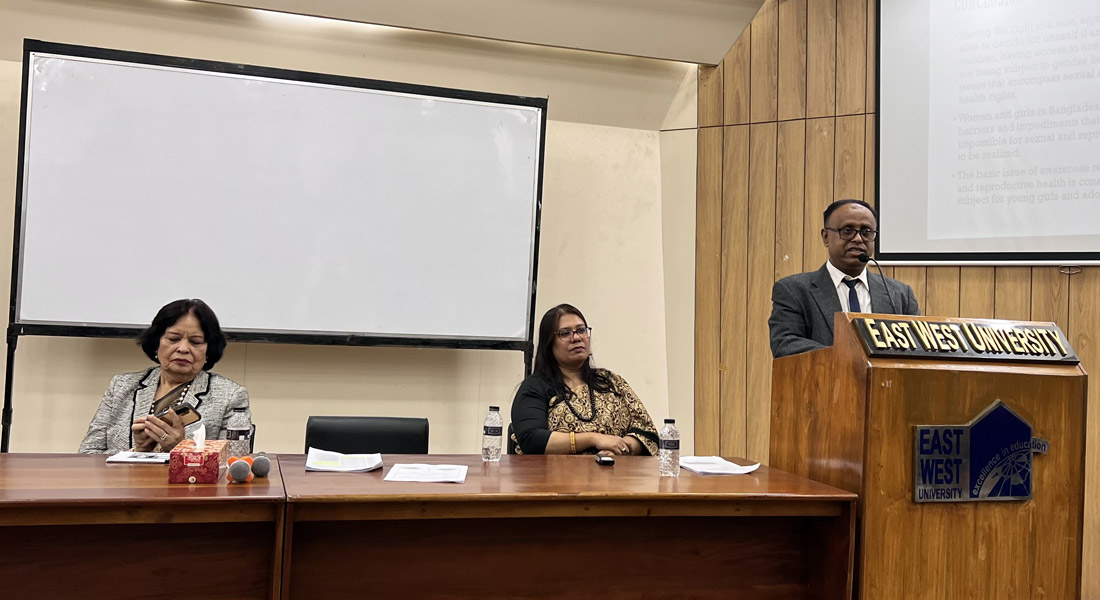
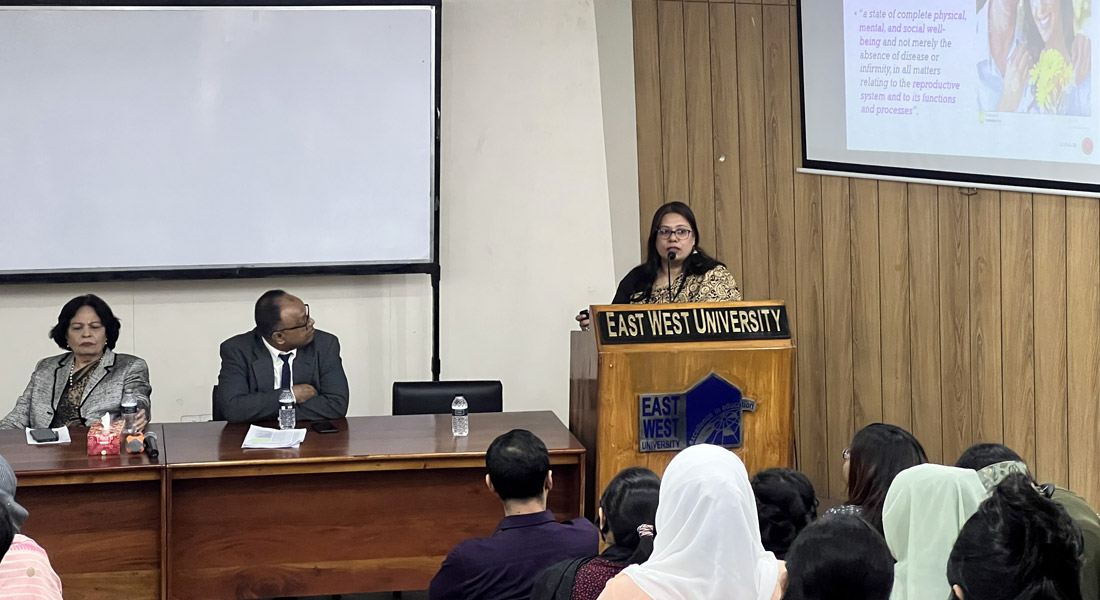
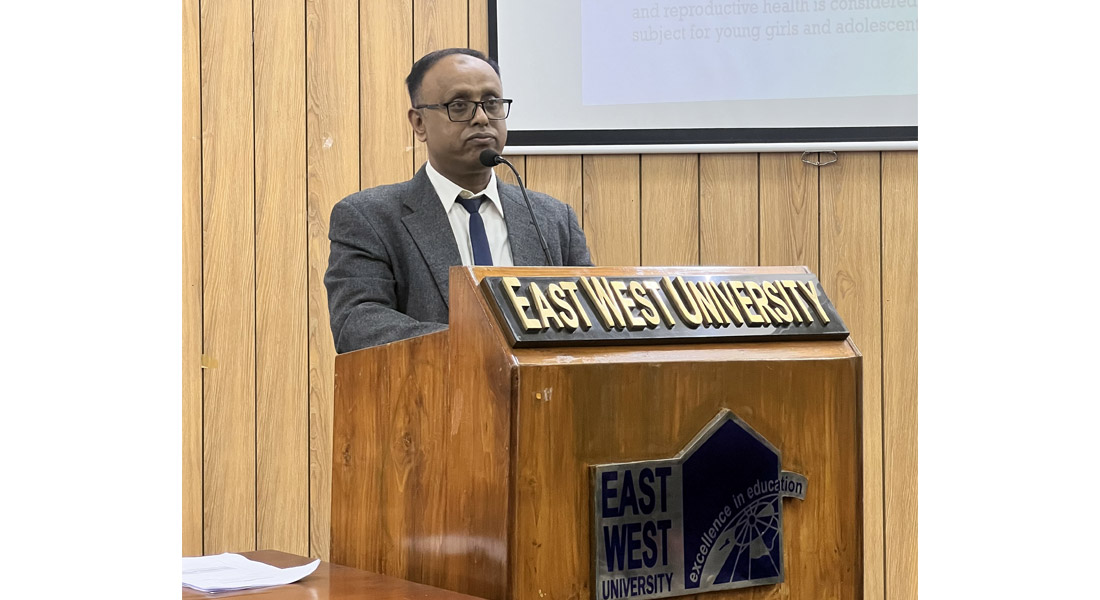
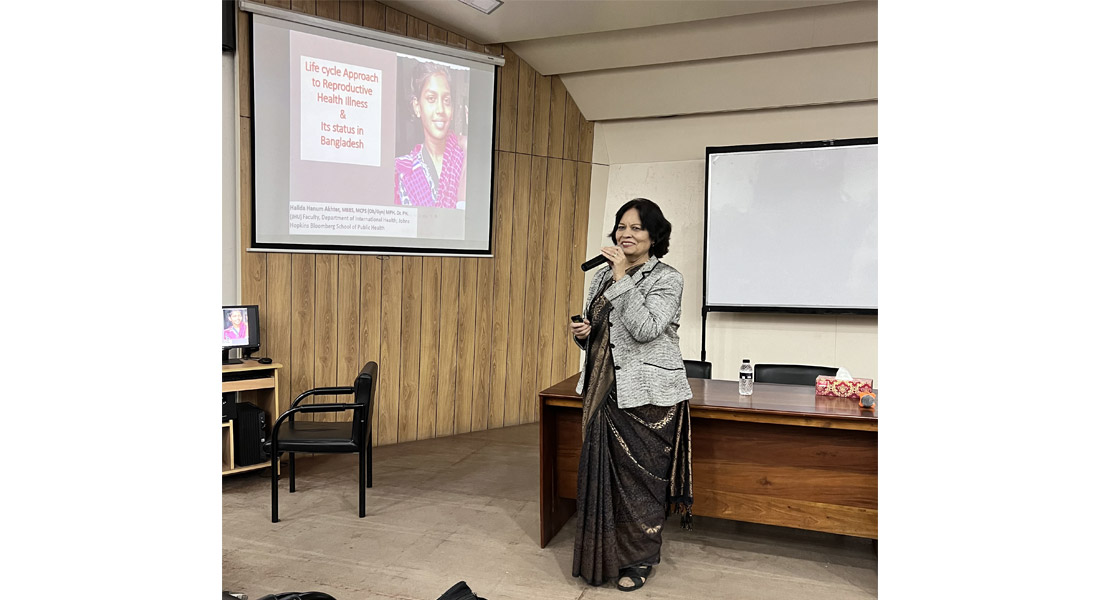
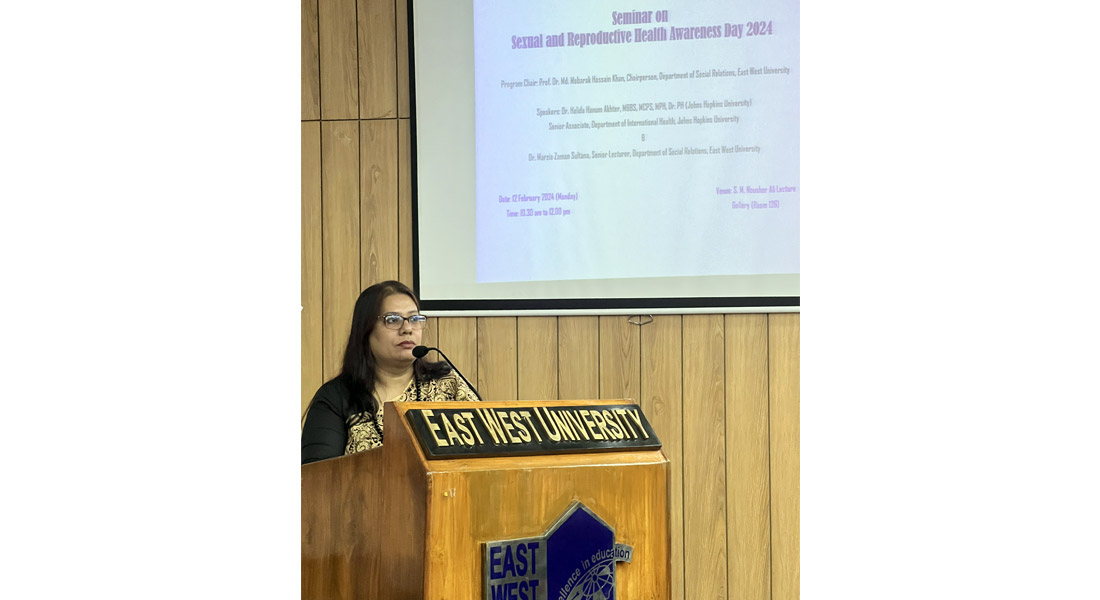
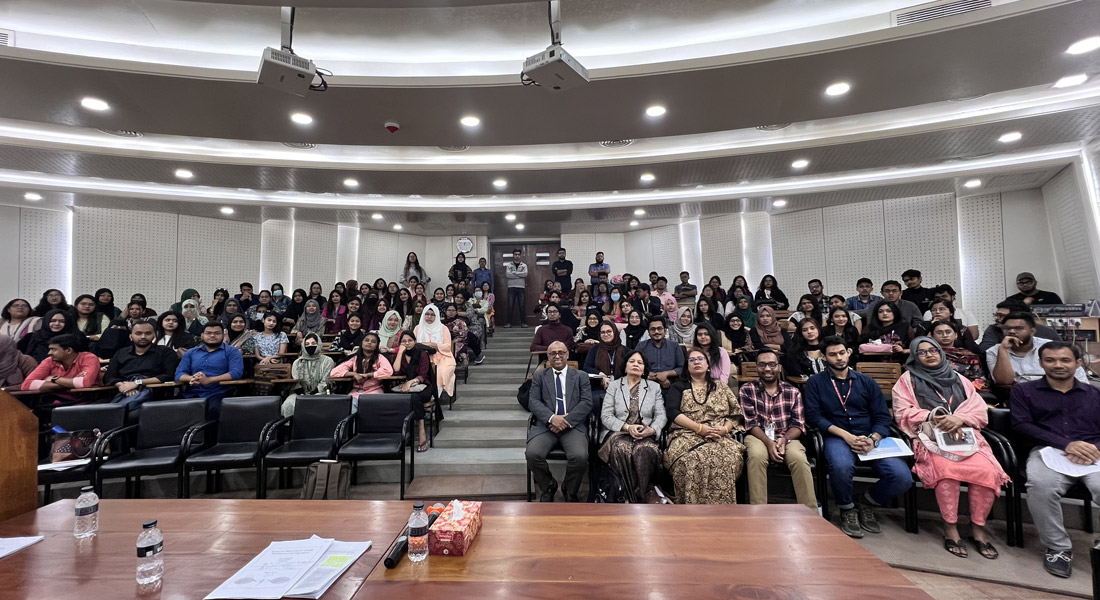
18
Feb
Seminar on ‘Sexual and Reproductive Health Awareness Day 2024’ Organized by Department of Social Relations, East West University
The Department of Social Relations, East West University organized a seminar on ‘Sexual and Reproductive Health Awareness Day 2024’ on 12 February 2024 at 10.30 am in S. M. Nousher Ali Lecture Gallery (Room No. 126). Professor Dr. Md. Mobarak Hossain Khan, Chairperson, Department of Social Relations, East West University chaired the seminar. Dr. Halida Hanum Akhter, Senior Associate, International Health, Johns Hopkins University and Dr. Marzia Zaman Sultana, Senior Lecturer, Department of Social Relations, East West University were the speakers at the seminar. Dr Halida Hanum Akhter is a renowned reproductive health epidemiologist with MBBS, MCPS in OB/GYN, MPH and Dr. PH from Johns Hopkins University. As a Rockefeller Fellow, she served as Epidemic Intelligence Service Officer (EIS) at the Centers for Disease Control and Prevention (CDC) Atlanta, GA. She assessed the reproductive health initiatives of the WHO/HRP, UNFPA, USAID, the Bill & Melinda Gates Foundation/IPPF, and the Ford Foundation while serving on the boards of Family Health International and PATH, Seattle. She served in “Seba Sadan” or the Nursing Home, a Government of Bangladesh backed immediate initiative to support pregnant rape victims of the Independence War of Bangladesh during 1971. Recently she has been awarded “G-100 Lifetime Achievement Award” and “The Begum Rokeya Padak 2023”. Faculty members of the Department of Social Relations and students of different courses and departments were present in the seminar and participated in the question answer session.
The program chair gave speech on ‘Sexual and Reproductive Health: Introduction and Importance’ on global and Bangladesh perspective. In his speech he mentioned that sexual reproductive health issues are major public health concern globally as revealed by Guttmacher-Lancet Report 2018 and essential for achieving sustainable development goals particularly 3, 5 and linked to others. SRH includes menstruation, HIV, STIs/RTIs, infertility, unintended pregnancy and abortion, teenage pregnancy, sexual dysfunction and psychosexual counselling and treatment, sexual abuse, premarital sex, contraception, sex education etc. Around 4.3 billion people of reproductive ages (puberty to menopause) are affected due to inadequate SRH services. Talking about SRH issues and seeking service is still a taboo in countries like ours and focus should be given on SRH service, counselling, sexual health education and sharing correct information for creating awareness.
Dr. Halida Hanum Akhter talked about ‘Life Cycle Approach in Reproductive Health’ where she mentioned about the reproductive health problems specially faced by a woman during her lifetime starting from childhood. Child marriage, early unwanted pregnancy, pregnancy and delivery related complications, lack of contraceptive use among young couple, legal barrier to abortion service, insufficient MR services are related to high maternal and infant mortality in Bangladesh, and she urged about healthy timing and spacing of pregnancy and improving reproductive health service to reduce these huge number of deaths.
Dr. Marzia Zaman Sultana talked about sexual reproductive health rights which are defined in the ICPD Program of Action paragraph 7.3 and are based upon rights recognized in international human rights treaties, declarations and other instruments. ICPD recognized that people’s sexual and reproductive health needs are rights that they are entitled to demand, and they include right to life, survival, liberty, security, highest attainable standard of health, privacy, information, sex education, freedom from discrimination and violence, right to choose partner, number and spacing of children etc. Every human being is entitled to these rights, and they should raise their voice and demand their rights. Women and girls in Bangladesh face various barriers and impediments that make it difficult for sexual and reproductive health rights to be realized. To improve the SRHR situation, government ministries, national and international organizations, media, human rights organizations, researchers and civil society need to work together more closely to attain and improve the SRHR issues.